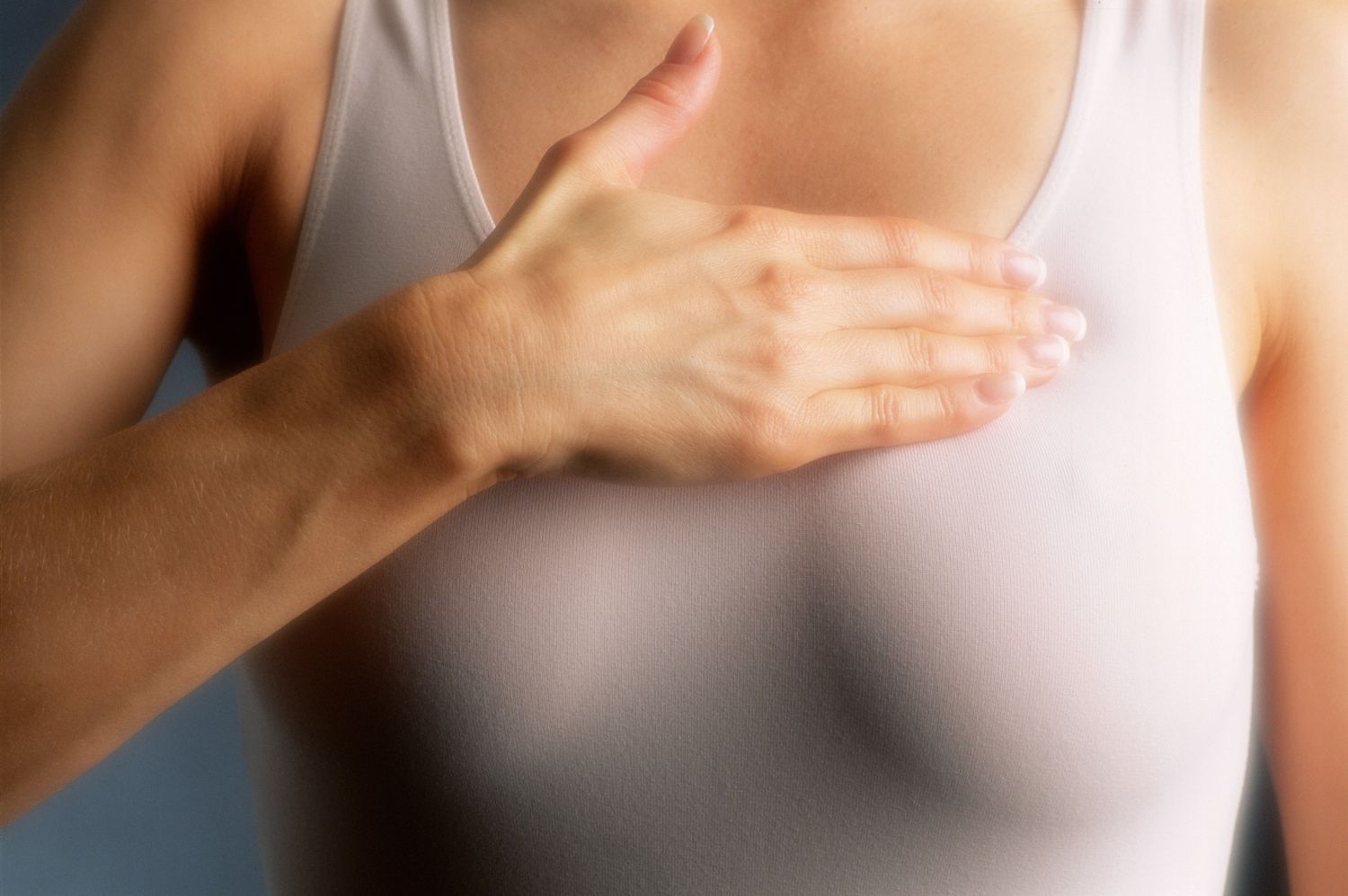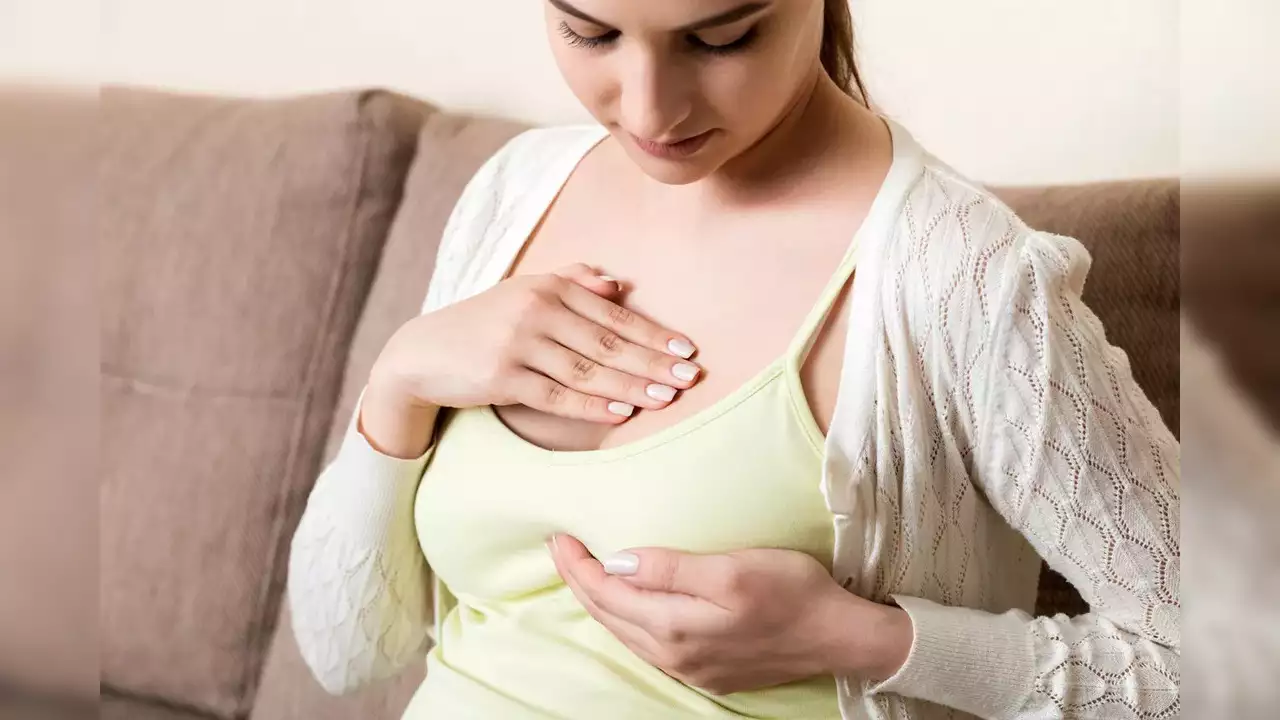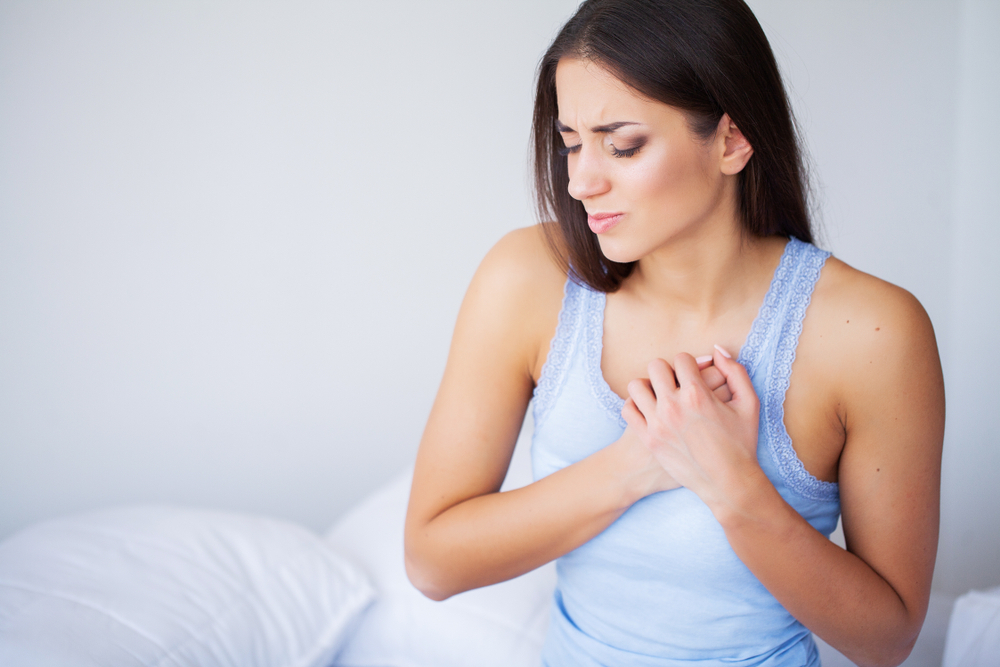Contents
- 1 What Causes Breast Pain Before Period?
- 2 Symptoms of Breast Pain Before Period
- 3 Breast Pain Before Period: Is It Normal?
- 4 How Is Menstrual Breast Pain Treated?
- 5 Frequently Asked Questions
- 5.1 What are some treatment options for menstrual breast pain?
- 5.2 How can a healthcare provider help with managing breast pain?
- 5.3 Why is it important to wear a well-fitted bra for breast pain?
- 5.4 Why is it recommended to consider oral contraception for breast pain relief?
- 5.5 Why is it emphasized to be aware of family history of breast cancer?
What Causes Breast Pain Before Period?
These hormonal changes, particularly variations in estrogen and progesterone levels, can lead to breast tissue changes and increased sensitivity, resulting in discomfort and pain.
-
Estrogen and Progesterone: During the menstrual cycle, estrogen levels rise in the first half, leading to the growth and development of breast ducts and tissue. As ovulation approaches, progesterone levels increase, preparing the breasts for potential pregnancy by causing glandular tissue to swell and retain fluid. These hormonal shifts can result in breast tenderness, swelling, and discomfort.
-
Fluid Retention: The hormonal changes that occur during the menstrual cycle can also lead to fluid retention in the body, including the breast tissue. This fluid retention can contribute to breast swelling and discomfort.
-
Inflammation: Hormonal fluctuations can trigger inflammation in the breast tissue, leading to pain and tenderness. Inflammatory processes may be heightened in individuals with conditions such as fibrocystic breast changes.

-
Caffeine and Diet: Some research suggests that caffeine consumption and dietary factors may exacerbate breast pain before the period in some individuals. Caffeine can stimulate the breast tissue, making it more sensitive and prone to discomfort, while dietary choices such as consuming high-fat or salty foods may contribute to water retention and breast swelling.
-
Stress: Psychological stress can exacerbate physical symptoms, including breast pain. Stress hormones such as cortisol may influence hormonal balance and sensitivity to pain, potentially worsening breast discomfort.
-
Breast Size and Structure: Women with larger breasts or dense breast tissue may be more prone to experiencing breast pain before their period due to increased hormonal sensitivity and tissue changes.
-
Previous Breast Trauma or Surgery: Previous breast trauma, surgery, or breast conditions such as fibrocystic changes may predispose individuals to experiencing cyclical breast pain.
Symptoms of Breast Pain Before Period
Symptoms of breast pain before the period, also known as cyclical mastalgia, typically include:
-
Breast Tenderness: The breasts may feel sensitive to touch or pressure, with discomfort ranging from mild to severe.
-
Swelling: The breasts may appear larger or feel swollen and heavy due to fluid retention and hormonal changes.
-
Soreness: Aching or throbbing sensations in one or both breasts are common, often concentrated in the outer areas or near the armpits.
-
Increased Sensitivity: The nipples and surrounding areas may become more sensitive, making activities such as wearing tight clothing or participating in high-impact exercises uncomfortable.
-
Lumpiness: Some individuals may notice areas of lumpiness or nodularity in the breast tissue, which can fluctuate in severity throughout the menstrual cycle.
-
Changes in Texture: The texture of the breast tissue may feel different, with areas of firmness or increased density due to hormonal fluctuations.
-
Pain Radiating to Armpits or Upper Arms: Discomfort may radiate from the breasts to the underarm area or upper arms, particularly during movement or pressure.
-
Emotional Symptoms: Some individuals may experience emotional symptoms such as mood swings, irritability, or anxiety, which can accompany physical discomfort.
Breast Pain Before Period: Is It Normal?
The answer is simple – it’s completely normal. Hormone fluctuations during your menstrual cycle are the main culprit behind this discomfort. It’s all due to progesterone, a hormone that causes your milk glands to swell. This swelling leads to tenderness and pain in your breasts.
Experiencing breast pain two weeks before your period might be due to hormonal changes around the middle of your cycle or ovulation. This can result in not only pain but also a feeling of heaviness in your breasts.

Whether you feel throbbing, sharp, stabbing, or burning pain, rest assured that you’re not alone – mastalgia can affect anyone. The intensity of breast pain can vary, occurring for a few days or even persisting throughout the month, unrelated to your menstrual cycle.
So, if you’re feeling this discomfort, remember, that it’s a common experience for many individuals. Embrace it as a sign of your body’s natural hormonal rhythm.
How Is Menstrual Breast Pain Treated?
Menstrual breast pain, also known as cyclic mastalgia, is a common and benign condition. Thankfully, there are several ways to manage and find relief from the discomfort. Here are some approaches you can consider:
Lifestyle Changes:
-
Supportive bra: Wearing a well-fitting, supportive bra can significantly reduce breast pain. Choose a bra that offers good lift and holds everything comfortably without digging in. It’s advisable to get sized regularly, especially as your breast size may change slightly over time.
-
Minimize caffeine and salt: Studies suggest that reducing caffeine and salt intake can help alleviate breast pain. Caffeine can act as a stimulant and may worsen symptoms, while salt can contribute to fluid retention which can cause breast swelling and discomfort.
-
Pain relieving medication: Over-the-counter pain relievers like ibuprofen or acetaminophen can help manage the pain and inflammation.
-
Warm compresses: Applying warm compresses to your breasts can help relax muscles and ease discomfort. Use a warm compress for 15-20 minutes at a time, a few times a day.
-
Evening primrose oil: This herbal supplement is sometimes used for menstrual cramps and breast pain. However, research on its effectiveness for breast pain is mixed. Consult your doctor before taking evening primrose oil, especially if you have any underlying health conditions or take medications.
Other potential options:
-
Vitamin E: Some studies suggest vitamin E may be helpful in reducing breast pain. However, more research is needed to confirm its efficacy. Discuss with your doctor if vitamin E supplementation is right for you.
-
Castor oil packs: While not scientifically proven, some women find topical application of castor oil packs on the breasts to be soothing. However, there’s limited evidence to support this practice.
When to see a doctor:
In most cases, menstrual breast pain resolves on its own with the onset of your period. However, it’s important to see your doctor if you experience:

- Severe or worsening pain that doesn’t improve with your period
- Lumps in your breasts
- Nipple discharge, especially if bloody
- Changes in breast skin texture or appearance
- Pain that only affects one breast
Early detection is crucial for any breast-related concerns. Your doctor can perform a breast exam, discuss your medical history, and recommend the most appropriate course of treatment for you.
Frequently Asked Questions
What are some treatment options for menstrual breast pain?
Treatment options include over-the-counter medications (NSAIDs, diuretics), wearing a well-fitted bra, considering oral contraception, and consulting a healthcare provider for personalized advice.
How can a healthcare provider help with managing breast pain?
A healthcare provider can offer personalized advice and treatment options based on your specific needs, ensuring effective management of moderate to severe breast pain.
Why is it important to wear a well-fitted bra for breast pain?
Wearing a well-fitted bra can provide proper support and reduce discomfort by minimizing movement and pressure on the breasts.
Why is it recommended to consider oral contraception for breast pain relief?
Oral contraception can help regulate hormone levels, potentially reducing breast pain associated with menstrual cycles.
Why is it emphasized to be aware of family history of breast cancer?
Being aware of family history helps in understanding personal risk factors and can prompt early screenings for timely detection of breast cancer.
I am a medical student with experience and interest in Women’s health and well-being.
